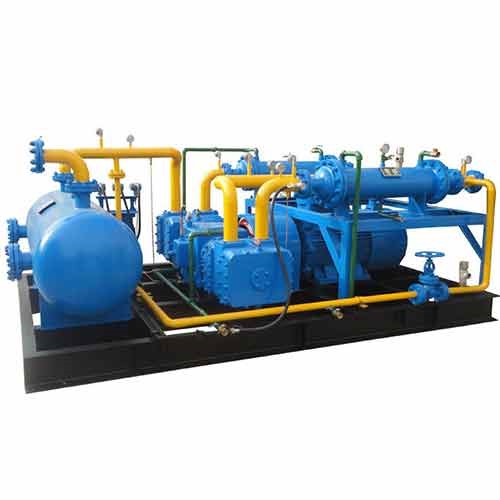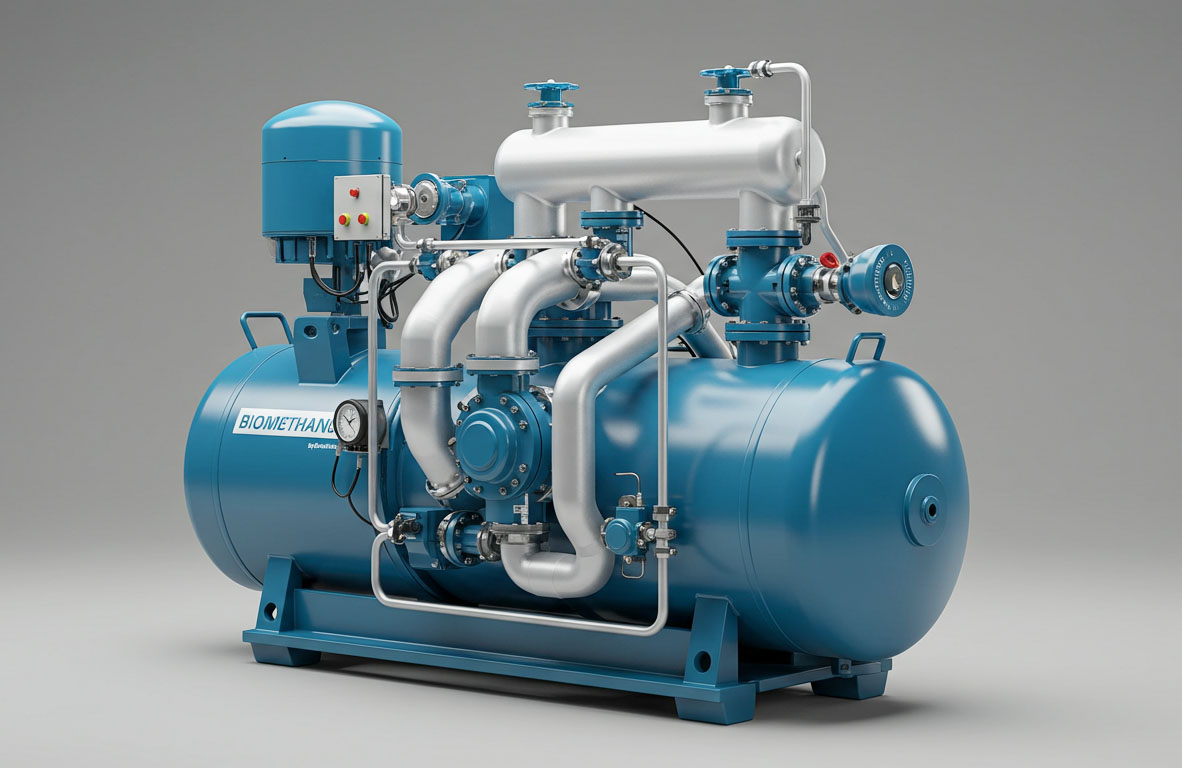Compressor Industrial Supplies: The Ultimate Guide to Choosing the Best Products for Your Business
Compressor Industrial Supplies are essential components in various manufacturing and industrial processes, playing a crucial role in powering a wide range of tools and equipment. From pneumatic tools to assembly lines, industrial compressors are vital for providing the necessary pressurized air to drive machinery and facilitate various operations. These compressors come in different types and sizes, each designed to meet specific industrial needs and applications.

Understanding the different types of industrial compressors and their performance metrics is fundamental for businesses seeking to optimize their operations. Whether it’s reciprocating, rotary screw, or centrifugal compressors, each type offers distinct advantages and is suitable for specific industrial applications. Additionally, knowledge of compressor maintenance and safety practices is crucial to ensure the longevity and efficiency of these vital industrial assets.
Industrial compressor supplies encompass a wide range of products, including parts, lubricants, and accessories that are essential for maintaining and optimizing compressor performance. Businesses must be well-informed about the selection and sizing of compressors to ensure they invest in the right equipment for their specific operational requirements. With a comprehensive understanding of industrial compressors and their applications, businesses can enhance their operational efficiency and productivity.
Key Takeaways
- Understanding the different types of industrial compressors and their performance metrics is crucial for optimizing operations.
- Knowledge of compressor maintenance and safety practices is essential for ensuring the longevity and efficiency of these vital industrial assets.
- Businesses must be well-informed about the selection and sizing of compressors to invest in the right equipment for their specific operational requirements.
Types of Industrial Compressors
There are various types of industrial compressors available, each with its own set of advantages and disadvantages. Here are the three most common types of industrial compressors:
Rotary Screw Compressors
Rotary screw compressors are one of the most popular types of industrial compressors. They are known for their durability, efficiency, and low maintenance requirements. These compressors use two rotors to compress air, which is then stored in a tank for later use. They are ideal for applications that require a constant supply of compressed air, such as manufacturing plants and automotive repair shops.
Reciprocating Compressors
Reciprocating compressors, also known as piston compressors, use a piston to compress air. They are commonly used for smaller applications, such as powering pneumatic tools or inflating tires. These compressors are typically less expensive than rotary screw compressors, but they require more maintenance and have a shorter lifespan.
Centrifugal Compressors
Centrifugal compressors are used for large-scale applications, such as power generation and natural gas processing. They use a spinning impeller to compress air, which is then released at high pressure. These compressors are known for their high efficiency and low maintenance requirements. However, they are typically more expensive than other types of compressors and require specialized knowledge to operate and maintain.
Overall, the choice of compressor will depend on the specific needs of the application. It is important to consider factors such as efficiency, maintenance requirements, and cost when selecting an industrial compressor.
Compressor Performance Metrics
Compressor performance metrics are essential in determining how well a compressed air system is operating. By measuring these key metrics, operators can identify and address any issues that may arise, optimize performance, and ensure that the system is running efficiently.
Capacity
Capacity is the amount of compressed air that a compressor can produce within a given period. It is measured in cubic feet per minute (CFM) or cubic meters per minute (m3/min). By measuring capacity, operators can determine whether the compressor is producing enough compressed air to meet the demand of the system.
Pressure
Pressure is another critical performance metric that operators must monitor. It is the force that the compressed air exerts on the system and is measured in pounds per square inch (PSI) or bar. Maintaining the correct pressure is crucial in ensuring that the system operates efficiently. Too little pressure can lead to decreased performance, while too much pressure can result in increased electricity costs.
Efficiency
Efficiency is the ratio of the amount of compressed air produced by the compressor to the amount of power consumed. It is measured in kW/100 cfm or kW/m3/min. By measuring efficiency, operators can determine how well the compressor is converting power into compressed air. A more efficient compressor will produce more compressed air while consuming less power, resulting in lower operating costs.
Power Consumption
Power consumption is the amount of electricity that a compressor uses to produce compressed air. It is measured in kilowatts (kW) and is a critical performance metric that operators must monitor. By measuring power consumption, operators can determine how much energy the compressor is using and identify opportunities to reduce energy consumption and operating costs.
Overall, monitoring compressor performance metrics is essential in ensuring that a compressed air system is operating efficiently and effectively. By measuring capacity, pressure, efficiency, and power consumption, operators can identify any issues and optimize performance to reduce operating costs and improve system reliability.
Maintenance and Safety

Preventive Maintenance
To ensure the longevity and efficiency of an industrial air compressor, regular preventive maintenance is crucial. This includes tasks such as draining condensate from the air receiver tank, cleaning or replacing air intake filters, checking and tightening loose belts or pulleys, inspecting hoses and connections for wear or leaks, and inspecting and cleaning the compressor’s cooling system, including the radiator and fan.
Preventive maintenance can help decrease downtime, which is a significant benefit. When machines function incorrectly, production usually halts, resulting in lost revenue. Preventive maintenance keeps machines running smoothly and efficiently, minimizing slowed production times.
Safety Protocols
Safety is a top priority when working with industrial air compressors. To ensure a safe working environment, it is essential to follow proper safety protocols, including wearing appropriate personal protective equipment (PPE) such as gloves, safety glasses, hearing protection, respirators, and masks. Safety supplies for eyewashes, first aid, fire protection, lockout/tagout, traffic, and more should also be readily available.
Industrial Compressor Applications

Manufacturing Processes
Industrial compressors play a crucial role in various manufacturing processes, providing the power needed for pneumatic tools, air cylinders, and air-driven machinery. They are essential for applications such as assembly lines, packaging, and material handling. By efficiently powering these processes, industrial compressors contribute to increased productivity and cost-effectiveness in manufacturing operations.
Automotive Industry
In the automotive industry, industrial compressors are utilized for a wide range of applications, including painting, air tools, and pneumatic conveying. Compressors provide the necessary air supply for spray painting vehicles, operating pneumatic tools in assembly lines, and powering pneumatic conveying systems for transporting materials within the manufacturing facility. This versatility makes industrial compressors indispensable in automotive manufacturing.
Energy Sector
Within the energy sector, industrial compressors are used for various critical functions. They are employed in natural gas processing plants for gas compression, in power generation facilities for pneumatic control systems, and in oil refineries for various pneumatic applications. Industrial compressors are vital for ensuring efficient and reliable operations in the energy sector, contributing to the overall productivity and safety of these facilities.
Selection and Sizing of Compressors
Assessing Demand
When selecting an industrial air compressor, it is crucial to assess the demand accurately. This involves understanding the specific air flow requirements of the application, expressed as cubic feet per minute (cfm), and the required pressure, expressed as pound-force per square inch gauge (psig). By comprehensively evaluating the demand, one can ensure that the chosen compressor meets the operational needs efficiently.
Sizing Considerations
Proper sizing of the compressor is essential to ensure optimal performance and energy efficiency. It is imperative to match the compressor’s capacity to the demand, avoiding oversizing or undersizing. By referring to the cfm and psig ratings, rather than just horsepower, one can accurately size the compressor for the intended application. This ensures that the compressor operates at its peak efficiency while meeting the required output.
Environmental Factors
Environmental considerations play a significant role in compressor selection. Factors such as ambient temperature, altitude, and humidity can impact the performance and longevity of the compressor. It is essential to account for these environmental variables to select a compressor that can operate effectively in the specific industrial setting.
Frequently Asked Questions
What are the key factors to consider when selecting an industrial air compressor?
When selecting an industrial air compressor, there are several key factors to consider. These include the type of compressor, the required pressure and volume, the power source, and the duty cycle. It is important to consider the specific needs of the application to ensure that the compressor can meet those needs.
How do maintenance requirements vary between different industrial compressor types?
Maintenance requirements for industrial compressors can vary depending on the type of compressor. Reciprocating compressors generally require more frequent maintenance than rotary screw compressors. Proper maintenance, however, is essential to keep industrial compressors running smoothly and efficiently. Regular maintenance can prevent breakdowns and extend the life of the compressor.
What are the advantages of portable industrial air compressors over stationary ones?
Portable industrial air compressors offer several advantages over stationary ones. They are more versatile and can be easily moved from one location to another. They are also ideal for applications where a stationary compressor is not practical. Portable compressors are often less expensive than stationary compressors and can be used for a variety of applications.
What is the expected lifespan of a 30-gallon industrial air compressor?
The expected lifespan of a 30-gallon industrial air compressor can vary depending on several factors, including the quality of the compressor and the frequency of maintenance. Generally, a well-maintained 30-gallon compressor can last up to 10 years or more.
How can I find reliable suppliers of industrial air compressor parts near me?
To find reliable suppliers of industrial air compressor parts near you, it is recommended to do some research online. Look for suppliers that have a good reputation and positive customer reviews. You can also ask for recommendations from other professionals in your industry.
What are the considerations when purchasing a used industrial air compressor?
When purchasing a used industrial air compressor, there are several considerations to keep in mind. These include the age and condition of the compressor, the maintenance history, and the reputation of the seller. It is important to thoroughly inspect the compressor and have a professional technician assess its condition before making a purchase.


